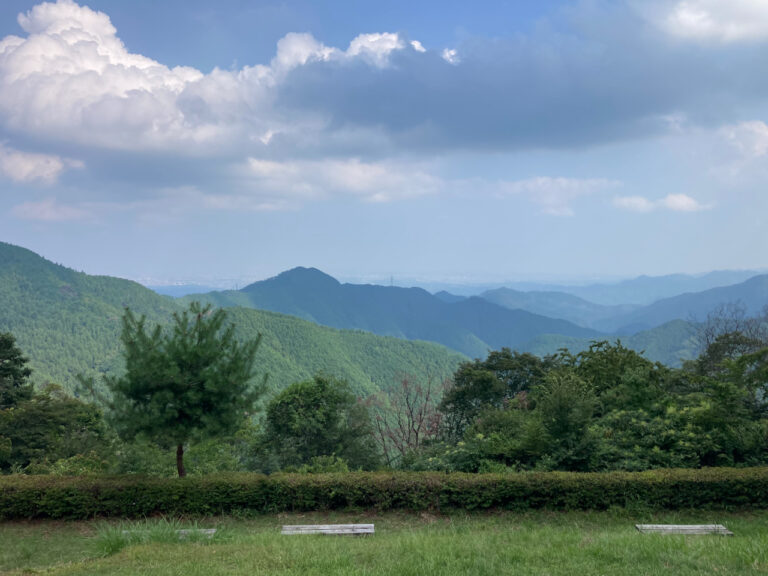
According to the latest evidence, the whole theory about so-called ‘blue zones’ – mythical regions of the world where practically every other resident is a centenarian – is looking distinctly shaky. Apparently, record keeping of people’s ages and dates of birth was not entirely thorough in many of these places, plus the people themselves may well have used this as an excuse to claim benefits they weren’t necessarily entitled to and engage in other, similarly shady practices. As you may be aware, one such blue zone is Okinawa, which, the more I found out about it after moving to Japan – high divorce rates, high alcohol consumption, love of Spam and all things deep fried – the more I had already begun to wonder why Okinawans were so supposedly long-living.
Even so, and leaving aside the other and very pertinent news from a few years back of many people who were still claiming their pensions despite being dead, Japan can justifiably lay claim to being in the top two or three countries in the world for life expectancy.
Various blue zone-type reasons for this are bandied around – a healthy diet and so-called ikigai (生き甲斐/reason for living) being the main ones – but personally, I think the most likely explanation is the Japanese health system, and more specifically, the fact that pretty much everyone has an annual health check (kenkō shindan/健康診断, also referred to as ningen dokku/人間ドック).
The health system is great because, depending on what illness or condition you are suffering from, you can go directly to a specialist, often without having to make an appointment. If you’re not keen on the specialist in question and/or want to get a second opinion, you can also shop around. For example, there are two ear, nose, and throat clinics within a fifteen-minute drive of our house. One is run by a rather eccentric and brusque old man and the other by a friendly and efficient middle-aged woman – unless it’s an emergency and she happens to be on holiday, we always go to the latter.
In financial terms, pretty much everyone in Japan pays a monthly national health insurance fee (as I recently discovered after a particularly busy year of translating work, this fluctuates in line with your earnings) and whenever they see a doctor, are admitted to hospital, buy medicine, and so on, about 90% of the cost is covered for them.
The annual health check is great because, for next to nothing (in my case it cost ¥3,200 this year – about 16 GBP), you can get a blood test, chest X-ray, ECG, eye, hearing, urine, and stool tests, along with measurements of more regular stuff like height, weight, and BMI. For a modest extra fee and depending on how old you are, there are optional extras such as a stomach X-ray (for this you have do the so-called barium swallow – drinking a gloopy white substance that shows up on the X-ray and with the aid of a laxative, passes through your system in little more than a couple of hours) and a separate blood test to check for prostate cancer. There are also enough dates to choose from that you’re in no danger of missing a year, and enough venues that you’re more than likely to be within walking or very easy driving distance from one.
So, down to the nitty gritty. Having gone semi-vegan four years ago and fully vegan two years ago, in 2025 I wanted to see if I could get my LDL cholesterol below 100 mg/dL. When I had my first health check in 2011, it was at 143, and remained high for the best part of a decade (admittedly, the first couple of times were because I didn’t realise that you aren’t supposed to eat on the morning of your health check – if you have a full breakfast as I did, it skews the results). In actual fact, partly because I can’t be bothered and partly because I don’t yet have that much to worry about health-wise, I only register for a health check bi-annually, but thanks to the joys of a plant-based diet, from a peak of 169 in 2019, my LDL level progressed from 134 in 2021 to 114 in 2023 and…(drum roll, please)…103 last month/this year.
So near and yet so far! Well, I seem to be one of those people who for whatever reason have naturally high cholesterol, and I’ve heard that even if you do go plant-based, somehow or other, the cholesterol remains in your system for years afterwards – possibly indefinitely (the film director Kevin Smith, for example, found this when he saw the plant-based light after having a heart attack). Also, nothing else on my list of results was abnormal, and one moderately high figure out of a few dozen in total isn’t really cause for alarm.
To give you an example of how potentially useful the blood test is, a few years ago my white blood cell count was rather low, so I was referred to a particularly special specialist who only visits a hospital in my town from Tokyo once a month. After a more thorough blood test that generated an A4-length list of new and confusing numbers, followed by a consultation (like a lot of doctors in Japan, he spoke very passable English), we came to the conclusion that, unless I had been working to clear up the mess at the Fukushima nuclear reactor or something similar, it was nothing to worry about. Again, this whole process was quick, cheap, and efficient.
One of the only problems with the annual health check is that a lot of people try very hard to reduce their cholesterol, keep their weight down, drink less alcohol or whatever in the weeks leading up to it, only to revert to their normal and less healthy routine as soon as it’s over, although even for folks like this, at least they’re made aware of what needs or ought to be done.
For my part, even though I am occasionally tempted by some grilled bonito or fried haloumi, I fully intend to continue ploughing the vegan furrow, whether or not I ever manage to get my LDL below 100 mg/dL.
As a footnote to this post, there was a guy that I used to know who did the same job as me when I still lived in London. When he was in his forties, he went on a skiing holiday in Europe with his wife, and one day when they were out on the slopes, he collapsed suddenly. He had suffered a completely unexpected heart attack, and even if the rescue team had reached him sooner, there was apparently no hope of saving his life. Not that I can prove it, but I can’t help thinking that had he been lucky enough to undergo an ECG every year, whatever condition or abnormality that caused the heart attack might have been picked up and he might still be with us. A little preventative medicine, it would seem, can go a long way.



